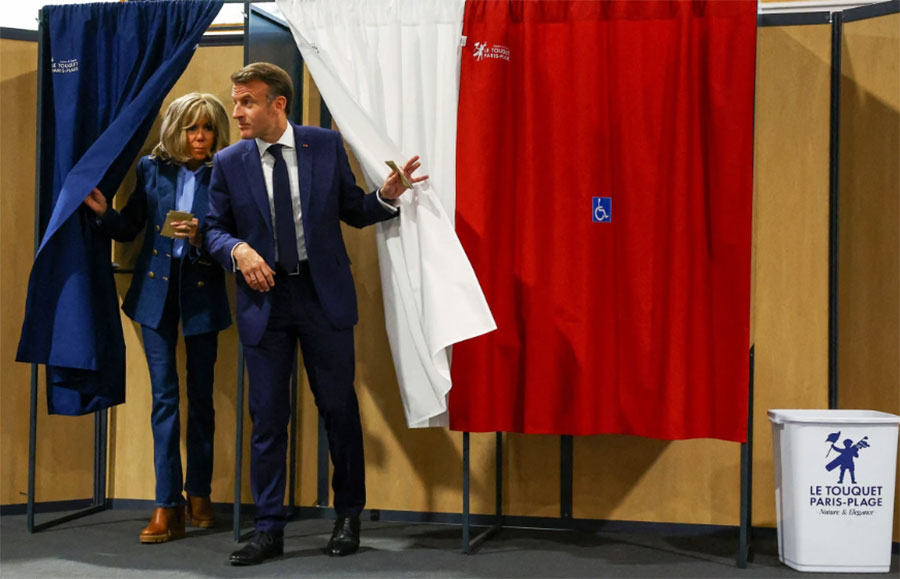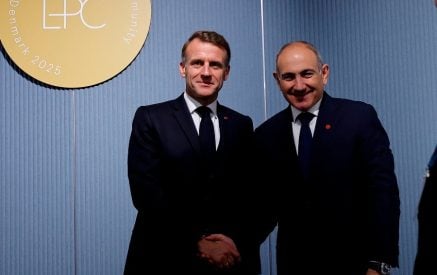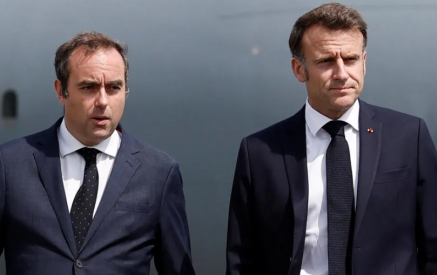by Economist
AFTER THE final round of voting in France’s legislative elections, a projection of the results by Ipsos, a polling company, published on the evening of the election on July 7th suggests the country is likely to have a hung parliament. But unlike polls before the vote suggested, the National Rally (RN), the hard-right party of Marine Le Pen and her 28-year-old protégé, Jordan Bardella, looks unlikely to become the biggest force in the lower house of parliament.
After securing the biggest vote share in the first round, they are projected to win a mere 138 to 145 seats (including their right-wing allies led by Eric Ciotti). They are far behind the New Popular Front (NFP), a left-wing alliance that looks set to win 177 to 192 seats. The NFP would still fall short of a majority, for which 289 seats are needed.
Ensemble, President Emmanuel Macron’s centrist coalition, has suffered a remarkable defeat, but is projected to win 152 to 158 seats, meaning his alliance looks set to drop to second place in the 577-seat National Assembly—instead of third, as polls had predicted. The remaining Republicans—who have ruled out working with the RN—are forecast to take between 63 and 67 seats.
Read also
The Economist is tracking the contest. Here you can find a breakdown of the results, analysis of what’s at stake and short guides to each group in parliament. And if you are interested in contests elsewhere, take a look at our election tracker hub.
Although Mr Macron will remain president, cohabitation (where the president and government are of different political stripes) or indeed a hung parliament are likely to lead to political deadlock in France. The president will have to appoint a new prime minister. He could nominate a technocrat or politician, and one in command of a parliamentary majority, or not. New elections cannot be called for at least a year and Mr Macron’s term officially ends in 2027.
National Rally (RN), led by Marine Le Pen, is a hard-right party and the successor to the National Front, founded by Ms Le Pen’s father. RN is a nationalist and Eurosceptic party, with a tough line on immigration. At the European Parliament elections on June 9th the RN won 30 seats whereas Mr Macron’s coalition secured just 13. It currently holds 88 seats in France’s National Assembly, but polls suggest it could become the biggest party after this election. A Kremlin-linked Russian bank financed some of Ms Le Pen’s previous election campaigns. The RN is opposed to Ukraine joining NATO or the EU. Ms Le Pen says she would put forward Jordan Bardella, her 28-year-old party head, as a candidate for prime minister.
The New Popular Front (NFP) is a newly formed alliance of left-wing parties. It is made up of Socialist, Green and Communist parties as well as Jean-Luc Mélenchon’s Unsubmissive France. A similar alliance in 2022 with Mr Mélenchon as its leader was named “New Popular, Environmental and Social Union”, or NUPES. The NFP has pledged to undo Mr Macron’s pension reform, and introduce a swatch of heavy new taxes on individuals and corporations. No single candidate for the position as prime minister has yet been announced by the coalition. The left-wing alliance is currently second in the polls.
Reconquest is a Catholic far-right party. It was founded in 2021 by Eric Zemmour, an anti-immigrant radical. In 2022 it came fifth in the first round of the parliamentary elections. On June 12th the party expelled Marion Maréchal, its former vice-president and Ms Le Pen’s niece, for telling people to support the RN in the upcoming election.





























































